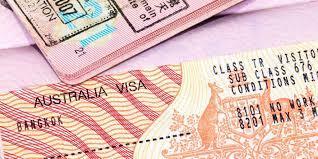
COVID-19 has changed everything, including migration. Since the pandemic began, the Department of Home Affairs (DoHA) has made a number of changes to the country’s migration policies and processes.
Australia’s economy has been affected by migration during the tumultuous time of pandemic.
Australia has lost of over 600,000 people since the mid-2020, 83 per cent of whom were generally of working age and highly skilled.
As part of its response to the pandemic, the federal government announced several concessions and relaxations related to migration process since 1 February 2020.
Student visa holders – work limitation concessions
To address workforce shortages, student visa work hours restrictions have been temporarily relaxed. Until 30 June 2023, all ongoing students as well as new student arrivals and secondary applicants are able to work more than 40 hours a fortnight in any sector of the economy and work before their course of study commences.
Relaxation in the requirement of health examinations for temporary visa applicants
The Australian government has announced a relaxation in the medical examination requirement for several temporary visa applicants in the country in a bid to simplify application processes. The government will review these arrangements in early 2023.
Prioritising skilled visas with the health and education sectors at the top
A new ministerial direction for prioritising skilled visa applications came into effect on 28 October 2022. It has formalised the Australian government’s processing priorities for the health and education sectors. The new priorities apply to all skilled visa nomination and visa applications that are yet to be decided, as well as new applications lodged.
Effective from 1 July 2022, there has been changes made to improve access to permanent residence for skilled migrant workers who chose to stay in Australia during the pandemic.
These arrangements extend to Temporary Skill Shortage (TSS) subclass 482 (Short-term stream) and Temporary Work (Skilled) subclass 457 visa holders.
Temporary Skill Shortage (TSS) subclass 482 visa holders in the short-term stream will be able to apply for permanent residence through the Temporary Residence Transition (TRT) stream of the Employer Nomination Scheme (ENS) subclass 186 visa.
Apart from that, eligible legacy subclass 457 visa holders will be able to access an age exemption when applying through the Temporary Residence Transition (TRT) stream of the Employer Nomination Scheme (ENS) subclass 186 visa.
COVID-19 Temporary Graduate replacement stream
The COVID-19 replacement stream is a replacement for the initial Temporary Graduate visa. It is only available for Temporary Graduate visa holders impacted by the Australian travel restrictions. This means, people who could not stay in Australia for the full period allowed by their previous Temporary Graduate visa.
Eligibility for the COVID-19 Pandemic event visa was broadened allowing extended stays of between 6-12 months for temporary visa holders working or intending to work in any sector, including paid flood recovery work.
Working Holiday Makers (WHMs) : Visa condition 8547 – 6-month work limitation
On 19 January 2022, the six-month work limitation was temporarily relaxed. The relaxation of this condition is currently in effect until 31 December 2022.
This allows Working Holiday Makers (WHMs) to work with any one employer for the duration of their visa without requesting permission.
This applies to anyone in Australia who either holds any kind of WHM visa, regardless of when they arrive, or holds a Bridging visa with condition 8547 imposed.
SOURCE:SBS
